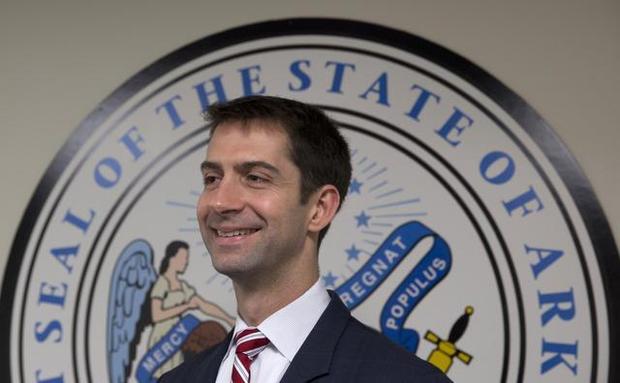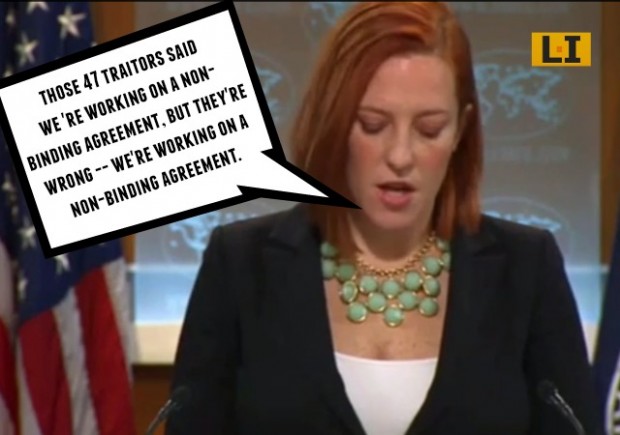How Fateful are Israel’s Knesset Elections on March 17th?
Sunday, March 15th, the Voice of Israel (VOI) Global Radio System aired a “National Security” program with Executive Producer and host Dan Diker and guests Dr. Harold Rhode former Pentagon Islamic Affairs expert, Distinguished Gatestone Institute Senior Fellow and Bassem Eid Arab correspondent for VOI. Eid is founder of the Jerusalem-based Palestinian Human Rights Monitoring Group. The thought provoking title was “Whom Do Radical Islamists Want as Israel’s Next Prime Minister?”
This is a must listen program for all those concerned about Israel’s future in the run up to Tuesday’s March 17th Israeli Knesset elections. Those elections have more than 20 parties competing for 120 seats. It will pit the current ruling coalition Likud government led by PM Benjamin Netanyahu against the Zionist Union headed by MK Yitzhak Herzog and former Justice Minister of Hatnuah, Tzipi Livni. There is also a new emerging factor. A coalition negotiated following the Knesset elections. It could include a Joint Arab List that might secure upwards of 13 to 15 seats. The Joint Arab List electoral results might possibly bolster the Zionist Union led opposition, including the leftist Meretz party, seeking to be given the nod to form a ruling coalition if selected by Israel President Reuven Rivlin. The VOI will have extensive live and extended coverage of these important Israeli Knesset elections on March 17th.
You may register and listen live to the VOI here.
Overarching this Knesset elections were disclosures this weekend of the U.S. Senate Permanent Investigations Subcommittee addressing complaints by PM Netanyahu of “foreign country involvement.” This is a reference to reports that the U.S. Administration has funded NGOs engaged in possible anti-Netanyahu “anyone but Bibi” vote campaigns among the country’s Arab and urban Jewish voters. The effort involves former Obama Presidential campaign field operations staff headed by Jeremy Bird of 270 Strategies. Support has come from major Obama Jewish Democratic contributors and possibly State Department funding of NGOs. Whether the Administration would prefer a new Israeli government whose policies might materially affect the national security and sovereignty of Jewish nation is at question?
This Ides of March VOI “National Security” program, is a fascinating and elucidating commentary about the dynamics of the contending forces in the regional Muslim communities, both Shia and Sunni, and views of the US Administration as an unreliable ally. That is reflected in the views of Saudi -backed Al Arabiya that gave high marks to PM Netanyahu for standing up to the threat posed by the Islamic State, Iran and proxies Hamas, Palestinian Islamic Jihad and Hezbollah. As pointed out by Dr. Rhode, Al Arabiya, strongly endorsed Netanyahu’s address before the Joint Meeting of Congress on March 3rd seeking to obtain a better deal to deter Iran from achieving nuclear hegemony in the region. There is also discussion of Egypt’s President Al-Sisi’s emerging role of importance trying to fashion a Sunni regional coalition of forces, the equivalent of a NATO – type organization to confront IS. Al-Sisi’s New Year’s speech in Cairo, before Al Azhar and the Awqfar Ministry, espoused reform of underlying Qur’anic doctrine that has returned to the takfir purist form of Islam emblematic of the apocalyptic IS, a self styled Caliphate. A Caliphate that as Dr. Rhode pointed out may have been fostered originally by Shia Mahdist Iran now ironically engaged in combating IS in Iraq.
Rhode and Diker suggested that if a more compliant Israel government was elected on Tuesday that IS and Hamas cells in the West Bank and Hezbollah with Iran on the Golan might foment possible trouble. Iran, as noted by Diker and Rhode, is rapidly spreading its hegemony threatening the region from Yemen on the Red Sea, across the Arabian Peninsula to the shores of the Persian Gulf and through Iraq and Syria to Lebanon on the Mediterranean coast. An Iran whose nuclear quest may have already triggered nuclear proliferation with Saudi Arabia’s disclosure of a recent nuclear development deal with South Korea. We found fascinating the discussion among Diker, Rhode and Bassem Eid, astute VOI Arab correspondent, on the internal Israel Arab Muslim divide over the question of whether they would support the United Arab List.
Bassem disclosed the previously not well known fact that 60 percent of Israeli Arab Muslims are more likely to vote for Jewish parties as loyal citizens rather than for the Arab list. The Party’s leaders are more concerned about Israel as an ‘apartheid state’. They have fashioned seditious relations with Ramallah, Gaza, Damascus and even Tehran and all enemies of Israel. Bassem also noted that the Palestinians view the Likud government and Netanyahu as more reliable with honoring commitments than prior experiences with both Labor and Kadima governments. Rhode explained that regional Arabs view favorably the Israeli democratic traditions that Arab Muslim citizens enjoy. He told of the impact of that on the Egyptian body guards of the late President Anwar Sadat when he came to Jerusalem in 1977 to give a speech before the Knesset. They noted, he said, the sharp contrast between the quiet respect paid to President Sadat when he spoke and the vigorous debates in the Knesset chamber that followed his address. The VOI program offers insights into what might occur Tuesday when Israel votes for the 33rd Knesset. The comments of these American and Israeli experts raise serious questions about the objectives of the US Administration Vis a vis a P5+1 non-binding deal to facilitate Iran’s nuclear hegemony.
Monday, March 16th, this writer and Mike Bates, co-host of Northwest Florida’s Talk Radio 1330 am WEBY will be interviewed by VOI National Security host Dan Diker. That recorded program will address Obama Administration funding via State Department AID and US Jewish moguls involved with OneVoice, V-15 and the Abraham Fund to get out the anti-Bibi vote in Israel. The program will also delve into controversy surrounding Sen. Cotton’s ‘Iran letter’. That controversy has led to revelations suggesting that the Administration is striving to establish a rapprochement with the Islamic Republic of Iran avoiding Congressional review instead seeking a nuclear agreement by the P5+1 at the UN via a Security Council resolution. That could result in lifting more than an estimated $70 billion in UN financial sanctions against Iran held in US banks controlled by the US Treasury, Office of Foreign Assets Control. Sunday talk show criticism of the Cotton letter to the leaders of the Islamic Republic of Iran by Secretary of State Kerry and former Secretary Madeleine Albright on CBS’ Face the Nation were contested by Sen. Cotton who drew attention to the precedent of a non verifiable deal made during the Clinton Administration with North Korea that eventuated in the latter’s creating a nuclear stockpile of weapons 12 years later.
Tuesday, VOI host Diker will join Northwest Florida’s talk radio 1330 am WEBY periodic Middle East Round Table co-hosts Bates and Gordon to report first returns from what many consider the fateful 2015 Knesset elections during 4:00 PM CST (5:00 PM EST) segment of “Your Turn”.
Listen Live here.
EDITORS NOTE: This column originally appeared in the New English Review.



